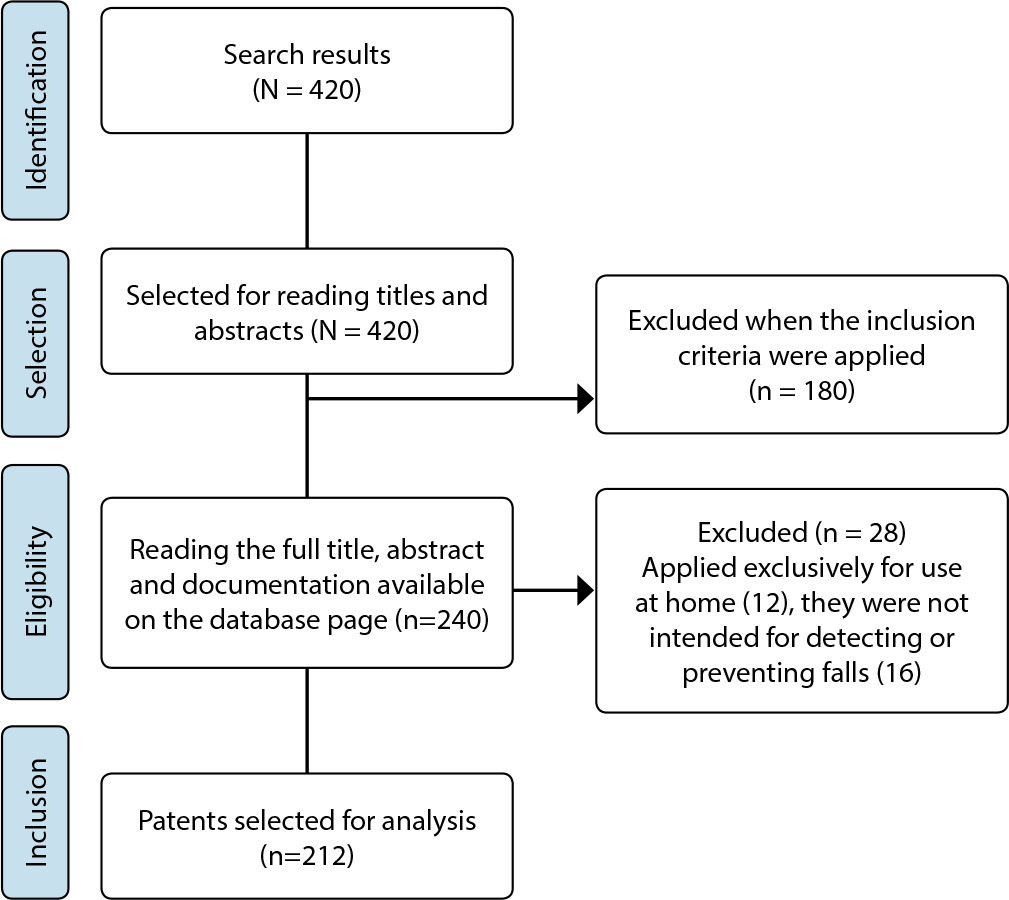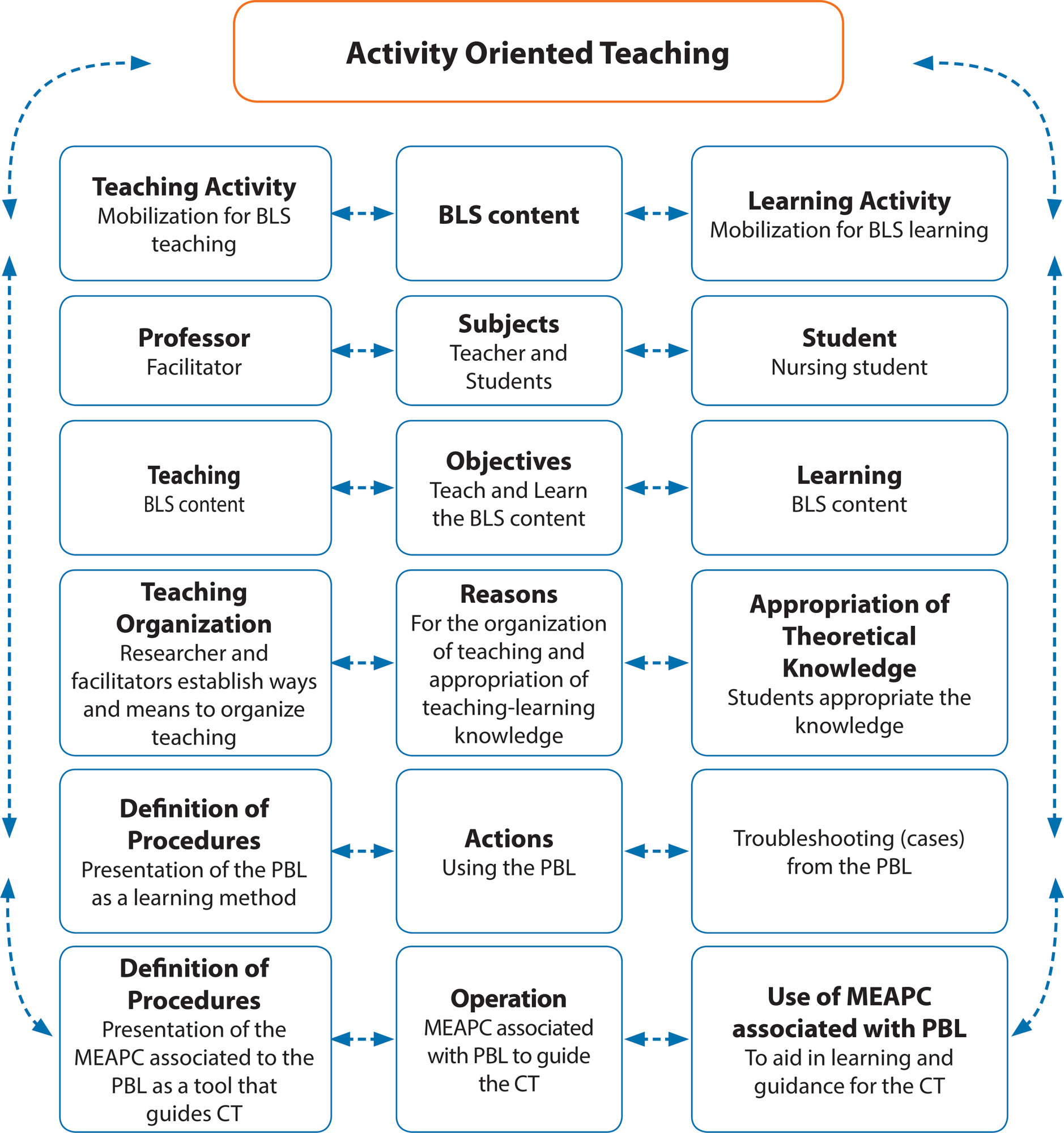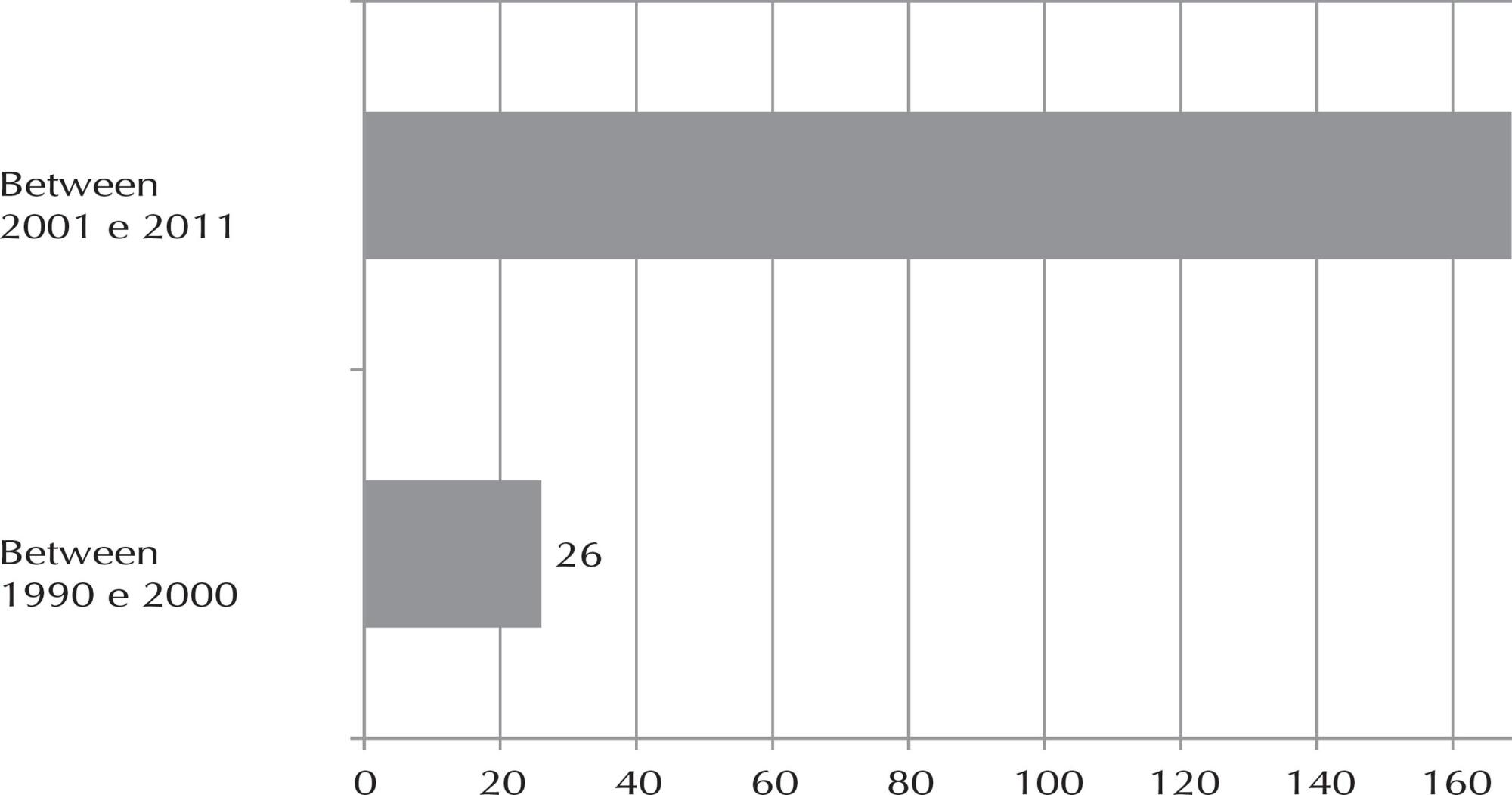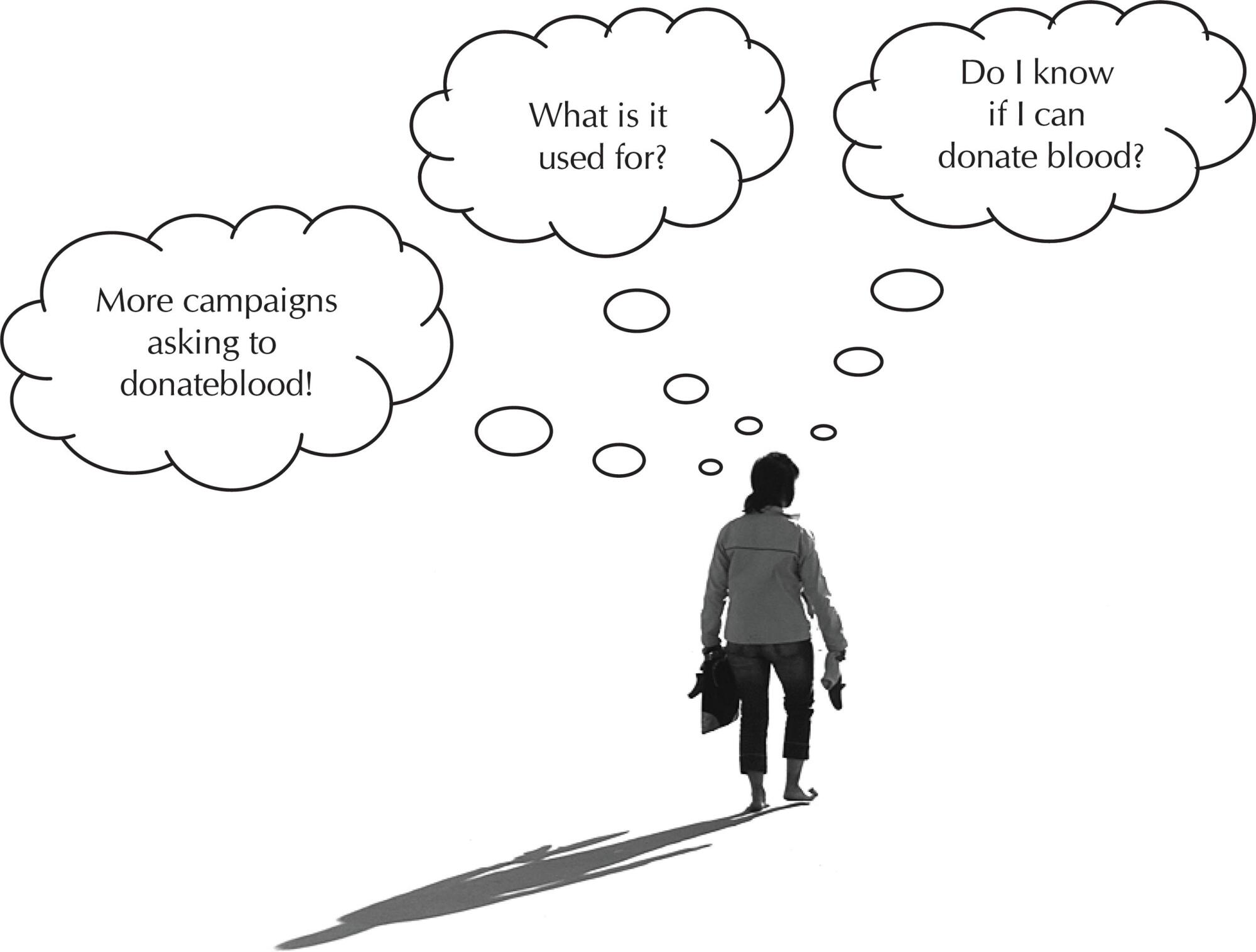-
ORIGINAL ARTICLE02-26-2024
Technological prospecting of patents related to monitoring accidents due to falls in hospitals
Revista Brasileira de Enfermagem. 2024;77(1):e20230084
Abstract
ORIGINAL ARTICLETechnological prospecting of patents related to monitoring accidents due to falls in hospitals
Revista Brasileira de Enfermagem. 2024;77(1):e20230084
DOI 10.1590/0034-7167-2023-0084
Views0See moreABSTRACT
Objectives:
to map the production of technologies aimed at monitoring falls in a hospital environment protected by registered patents.
Methods:
a technological prospecting of international patents, with a quantitative approach, with search carried out between February and March 2022 in the Derwent Innovations Index database with descriptors fall, hospital, monitoring.
Results:
212 patents were found, with the majority filed and published since 2010, by Tran B (9) and Cerner Innovation Inc (9), focused on health technology. Universities were responsible for 13% of deposits. There was a predominance of records from the United States (43.4%), China (21.7%) and Japan (12.3%), in addition to technological strategies classified as devices for the environment (80.7%) and for preventing falls (66.5%) as well as trend towards resources with multiple functionalities in the same technology.
Conclusions:
the plurality of functions in the same device reflects the search for optimizing resources and the concern with comprehensive care.

-
ERRATUM02-26-2024
ERRATUM
Revista Brasileira de Enfermagem. 2024;77(1):e20230045
Abstract
ERRATUMERRATUM
Revista Brasileira de Enfermagem. 2024;77(1):e20230045
DOI 10.1590/0034-7167.20247701e04
Views0In the article “Coping strategies for chronically ill children and adolescents facing the COVID-19 pandemic”, with DOI number: , published in Revista Brasileira de Enfermagem, 2023;76(Suppl 2):e20230045, in the author:Where it read:[…]See more -
ERRATUM02-26-2024
ERRATUM
Revista Brasileira de Enfermagem. 2024;77(1):e20160061
Abstract
ERRATUMERRATUM
Revista Brasileira de Enfermagem. 2024;77(1):e20160061
DOI 10.1590/0034-7167.20247701e03
Views0In the article “Nurses in the labor market: professional insertion, competencies and skills”, with DOI number: , published in Revista Brasileira de Enfermagem, 2017;70(6):1220-6, on page 1225:Include before REFERENCES:[…]See more -
ORIGINAL ARTICLE01-24-2019
Active teaching model to promote critical thinking
Revista Brasileira de Enfermagem. 2019;72(1):293-298
Abstract
ORIGINAL ARTICLEActive teaching model to promote critical thinking
Revista Brasileira de Enfermagem. 2019;72(1):293-298
DOI 10.1590/0034-7167-2018-0002
Views0See moreABSTRACT
Objective:
To present the experience of elaboration and implementation of the Active Teaching Model to Promote Critical Thinking (MEAPC), associated to Problem-Based Learning (PBL), for undergraduate students in Nursing.
Method:
Case report on the experience of the educational intervention (MEAPC + PBL) with undergraduate students in Nursing, in a 20-hour course on Basic Life Support (BLS). The MEAPC was validated by judges to guide the analysis of clinical cases. Critical Thinking (CT) skills were assessed using the California Critical Thinking Skills Test.
Result:
The educational intervention took place in two phases: elaboration and implementation, allowing not only the production of knowledge about BLS, but also the development of CT and exchange of experiences for teaching-learning.
Conclusion:
The association of the MEAPC to the PBL in the course of BLS organized the learning, gave opportunity to acquire knowledge and to stimulate the skills of the CT.

-
RESEARCH01-24-2017
Nurses in the labor market: professional insertion, competencies and skills
Revista Brasileira de Enfermagem. 2017;70(6):1220-1226
Abstract
RESEARCHNurses in the labor market: professional insertion, competencies and skills
Revista Brasileira de Enfermagem. 2017;70(6):1220-1226
DOI 10.1590/0034-7167-2016-0061
Views0See moreABSTRACT
Objective:
to characterize nurses graduated from the School of Nursing of the University of São Paulo, from 2006 to 2012; verify their entry, facilitating factors and difficulties of these graduates in the labor market and to consider their skills and competences in the world of work.
Method:
an exploratory, descriptive study with a qualitative approach.
Results:
out of 505 graduates, 172 (34.1%) participated in the research. Entry into the labor market was mainly via public hospital institutions, in the SE of Brazil, in the caregiving sectors. The greater part remained from one to two years in their first job. Most agreed that they were prepared to meet the health needs of the population. Furthermore, they had been encouraged to seek systematic and continuous improvement in a critical, reflexive and creative way, while combining technical-scientific knowledge and personal skills.
Conclusion:
the results show that the University of São Paulo has been preparing nurses for work in the labor market, in accordance with the provisions of the National Curricular Guidelines.
-
01-15-2024
ERRATA
Revista Brasileira de Enfermagem. 2024;77(1):e2024n1e01
Abstract
ERRATA
Revista Brasileira de Enfermagem. 2024;77(1):e2024n1e01
DOI 10.1590/0034-7167.20247701e01
Views0En el artículo “La ética del cuidado de enfermería para personas transgénero”, con número DOI: , publicado en la Revista Brasileira de Enfermagem, 2023;76( Suppl 3):e20220797, en autoría:Onde se lia:[…]See more -
ERRATUM01-15-2024
ERRATUM
Revista Brasileira de Enfermagem. 2024;77(1):e2024n1e01
Abstract
ERRATUMERRATUM
Revista Brasileira de Enfermagem. 2024;77(1):e2024n1e01
DOI 10.1590/0034-7167.20247701e01
Views1In the article “The ethics of nursing care for transgender people”, with DOI number: , published in Revista Brasileira de Enfermagem, 2023;76(Suppl 3):e20220797, in authorship:Where it read:[…]See more -
12-08-2024
Contexto ibero-americano da enfermagem: construindo e compartilhando conhecimento
Revista Brasileira de Enfermagem. 2024;77(1):e770101
Abstract
Contexto ibero-americano da enfermagem: construindo e compartilhando conhecimento
Revista Brasileira de Enfermagem. 2024;77(1):e770101
DOI 10.1590/0034-7167.2024770101pt
Views0Na próxima semana, acontecerão dois grandes eventos científicos em Madri e Granada (Espanha). Serão atividades internacionais, específicas e de forma muito especial, embora não exclusivas do campo ibero-americano, organizadas e desenvolvidas por duas sociedades científicas de enfermagem muito importantes, como a Associação de Enfermagem Comunitária (AEC) e a Associação Latino-Americana de Escolas e Faculdades de […]See more
-
ORIGINAL ARTICLE10-06-2023
Nursing students’ professional values for reinforcing the professional identity
Revista Brasileira de Enfermagem. 2023;76:e20220338
Abstract
ORIGINAL ARTICLENursing students’ professional values for reinforcing the professional identity
Revista Brasileira de Enfermagem. 2023;76:e20220338
DOI 10.1590/0034-7167-2022-0338
Views0See moreABSTRACT
Objectives:
to understand the nursing students’ professional values in different Brazilian universities and verify a correlation between the “Professional Value” and the sociodemographic variables.
Methods:
quantitative, cross-sectional, and descriptive study conducted through an electronic questionnaire with a Professional Values Scale (NPVS-3). Participants were Nursing students of all semesters from three universities – two in the Southeast region and one in the North region.
Results:
of the 337 participating Nursing students, 282 were female. The Caring dimension presented the highest score (mean=46.61), and Professionalism, the lowest score (mean=34.65). A statistically significant association was detected between the Caring dimension, “university where is attending,” and “gender.”
Conclusions:
the results indicate the Caring dimension as the one containing the most scored professional values since the nurses’ training, and the relation of those values in such dimension is more significant in the female sample.
-
10-06-2023
Pesquisa Translacional em Saúde: para onde vamos?
Revista Brasileira de Enfermagem. 2023;76(5):e760501
Abstract
Pesquisa Translacional em Saúde: para onde vamos?
Revista Brasileira de Enfermagem. 2023;76(5):e760501
DOI 10.1590/0034-7167.2023760501pt
Views0Os contributos das pesquisas científicas são incontestáveis para o avanço da ciência e para a sociedade. Por isso, cada vez mais reflexões acerca dos impactos e da aplicabilidade dos estudos têm permeado o centro das discussões em nível global, sobretudo diante do aumento crescente da produção de conhecimentos. Nesse cenário, a translação da pesquisa (TP) […]See more -
10-06-2023
Translational Health Research: where are we going?
Revista Brasileira de Enfermagem. 2023;76(5):e760501
Abstract
Translational Health Research: where are we going?
Revista Brasileira de Enfermagem. 2023;76(5):e760501
DOI 10.1590/0034-7167.2023760501
Views0The contributions of scientific research are undeniable for the advancement of science and for society. Therefore, more and more reflections on the impacts and applicability of studies have permeated the center of discussions at a global level, especially considering the growing increase in knowledge production. In this scenario, research translation (RT) has a notable importance […]See more -
10-06-2023
Advanced Practice Nursing: “Training” Pillar in Supporting the Proposal in Brazil
Revista Brasileira de Enfermagem. 2023;76(5):e20230118
Abstract
Advanced Practice Nursing: “Training” Pillar in Supporting the Proposal in Brazil
Revista Brasileira de Enfermagem. 2023;76(5):e20230118
DOI 10.1590/0034-7167-2023-0118
Views0See moreABSTRACT
Objectives:
to present the pillars that support what has been called Advanced Practice Nursing and discuss the necessary training for its implementation.
Methods:
elements contained in assessment documents for graduate programs proposals, reports of presentations by international professors in countries and selected scientific publications were gathered to compose the argument.
Results:
practice/competency (adds broad and in-depth knowledge about health processes and scientific evidence, clinical reasoning and clinical skills for therapeutic indications); 3) professional regulation (corresponding legislation and monitoring); and 4) funding (broad training and professional practice policy).
Final Considerations:
the agenda for implementing Advanced Practice Nursing in Brazil involves joining efforts to identify stakeholders for a work to legitimize their importance in the country’s health and education overview.

-
ORIGINAL ARTICLE10-06-2023
Quality of health care in Primary Care: perspective of people with Diabetes Mellitus
Revista Brasileira de Enfermagem. 2023;76(5):e20230008
Abstract
ORIGINAL ARTICLEQuality of health care in Primary Care: perspective of people with Diabetes Mellitus
Revista Brasileira de Enfermagem. 2023;76(5):e20230008
DOI 10.1590/0034-7167-2023-0008
Views0See moreABSTRACT
Objectives:
to identify how people with diabetes assess the care offered by Primary Care teams.
Methods:
a cross-sectional study based on structured interviews with the application of the Patient Assessment of Chronic Illness instrument to people with Type 2 Diabetes Mellitus. Data were submitted to statistical analysis.
Results:
451 individuals participated in the study, more than half aged 60 years or older (64.0%); 63.9% had been diagnosed for more than five years; and 23.9% used insulin. The average score obtained was 2.5, which indicated little involvement in self-care and low support for the care of the chronic condition by the Family Health Strategy team, and was higher among women and people with a partner.
Conclusions:
people with diabetes consider that they do not receive individualized treatment, with dialogue and discussion for setting goals, and that they are not prepared for self-managing their health condition.

-
REVIEW10-06-2023
Nursing theories in the care of stroke patients: a scoping review
Revista Brasileira de Enfermagem. 2023;76(5):e20220791
Abstract
REVIEWNursing theories in the care of stroke patients: a scoping review
Revista Brasileira de Enfermagem. 2023;76(5):e20220791
DOI 10.1590/0034-7167-2022-0791
Views0See moreABSTRACT
Objectives:
to map and synthesize nursing theories and conceptual frameworks that have been applied in the practice of nursing care for stroke patients in hospital settings.
Methods:
a scoping review was conducted in October 2022 using the MEDLINE (accessed via PubMed), CINAHL, Scielo, and Web of Science databases, following The Joanna Briggs Institute guidelines.
Results:
nine studies incorporated six nursing theories and three conceptual frameworks, which were employed to enhance stroke patient care. The objective of these theories and conceptual frameworks was to facilitate the identification of the patient’s psychobiological, psychosocial, and psychospiritual needs, elucidate the nurse’s role and expand their perspective on rehabilitation, and acknowledge the survivor’s process of transition.
Final Considerations:
this mapping exercise identified major nursing theories, middle-range theories, and conceptual frameworks applied to the care of stroke patients.

-
ORIGINAL ARTICLE10-06-2023
Learning strategies of undergraduate nursing students during the COVID-19 pandemic
Revista Brasileira de Enfermagem. 2023;76(5):e20220764
Abstract
ORIGINAL ARTICLELearning strategies of undergraduate nursing students during the COVID-19 pandemic
Revista Brasileira de Enfermagem. 2023;76(5):e20220764
DOI 10.1590/0034-7167-2022-0764
Views0See moreABSTRACT
Objectives:
to analyze the learning strategies used by nursing students from a public university, in remote teaching, during the COVID-19 pandemic.
Methods:
a cross-sectional study developed with nursing students who attended remote teaching classes. The sample was obtained by convenience and data were collected online, with 112 participants. Student and Mann-Whitney tests were performed for data analysis.
Results:
the most frequently used learning strategies were self-regulatory and cognitive. There was moderate use of interpersonal help-seeking and emotional control strategies. Male students, with a private study environment and good internet connection, used emotional control strategies more frequently.
Conclusions:
self-regulatory and cognitive learning strategies, appropriate for higher education, were frequently used by nursing students, which is an important tool for adapting these students to the university context.
-
ORIGINAL ARTICLE10-06-2023
Nursing, history, and orthopedics in manuals (1875-1928)
Revista Brasileira de Enfermagem. 2023;76(5):e20220567
Abstract
ORIGINAL ARTICLENursing, history, and orthopedics in manuals (1875-1928)
Revista Brasileira de Enfermagem. 2023;76(5):e20220567
DOI 10.1590/0034-7167-2022-0567
Views0See moreABSTRACT
Objectives:
to discuss the content of manuals, with emphasis on orthopedics, in support of the development of nursing care culture.
Methods:
cultural-historical method articulated with document analysis technique. The sources were nursing manuals – Portuguese, French, English, and Spanish – from 1875 to 1928.
Results:
this study pointed to 12 works – 6 authored by physicians, 2 by nurses, 3 institutional, and 1 by a Sister of Charity – that presented, in a transversal way, the professionalization process initiated in Europe. The manuals addressed first aid care and immobilization methods, from the simplest, such as improvised splints, to the application of plaster casts.
Conclusions:
the nurses’ work, even in a limited capacity, showed that they were able to observe warning signs so that doctors could act, with some exceptions.

-
01-01-2015
Factors associated with immunization against Hepatitis B among workers of the Family Health Strategy Program
Revista Brasileira de Enfermagem. 2015;68(1):84-92
Abstract
Factors associated with immunization against Hepatitis B among workers of the Family Health Strategy Program
Revista Brasileira de Enfermagem. 2015;68(1):84-92
DOI 10.1590/0034-7167.2015680112p
Views0See moreObjective:
to investigate the report of vaccination against Hepatitis B, verification of immunization and the factors associated with dosages of anti-HBs.
Method:
we collected blood samples from those reported that they had one or more doses of the vaccine. We evaluated the association of the dosage of anti- HBs with sociodemographic conditions, occupational and behavioral. The associations were verified by Mann Whitney and Kruskal Wallis and correlation Spermann by linear regression using SPSS® 17.0.
Results:
among the 761 respondents, 504 (66.1%) were vaccinated, 52.5 % received three doses, 30.4 % verified immunization. Of the 397 evaluated for the determination of anti-Hbs, 16.4% were immune.
Conclusion:
it was found that longer duration of work was associated with higher levels of anti-HBs, while levels of smoking were inversely associated with anti-HBs. These workers need for vaccination campaigns.
-
01-01-2015
The decreasing number of cigarettes during psychiatric hospitalization: intervention or punishment?
Revista Brasileira de Enfermagem. 2015;68(1):76-83
Abstract
The decreasing number of cigarettes during psychiatric hospitalization: intervention or punishment?
Revista Brasileira de Enfermagem. 2015;68(1):76-83
DOI 10.1590/0034-7167.2015680111p
Views0See moreObjective:
To identify the mental disorders carriers’ perception, the smokers ones, about the decreasing number of cigarettes during psychiatric hospitalization.
Method:
Exploratory study with 96 hospitalized carriers of mental disorders who are smokers: G1 (34 subjects hospitalized when was allowed one cigarette by hour) and G2 (62 subjects hospitalized when it was reduced to eight cigarette by day). Semi-structured questionnaire. Thematic content analysis.
Results:
The G1 admitted satisfaction with the restriction – smoking during hospitalization as entitlement. The G2 resists the restriction change occurred without dialogue or support. In spite of the difficulties, some attitude changes about the cigarette were noticed such as increase of the responsibility, discovery of the ability to reduce smoking and the meaning of its role.
Conclusion:
Some subjects understand the smoking health policy change as punishment, while others as opportunity to think about the role of cigarette in their life.
-
01-01-2015
Family functionality in oldest old household residents
Revista Brasileira de Enfermagem. 2015;68(1):68-75
Abstract
Family functionality in oldest old household residents
Revista Brasileira de Enfermagem. 2015;68(1):68-75
DOI 10.1590/0034-7167.2015680110p
Views0See moreObjective:
the aim of this study was to identify factors associated with family functionality of non-institutionalized long-lived subjects, who were residents in Goiânia (GO), Brazil.
Method:
this was a population-based epidemiological study with cross-sectional outline. Evaluation scales of the functional and cognitive capacities were used. Family dynamics was measured using the Adaptation, Partnership, Growth, Affection, and Resolve (APGAR) instrument by making home interviews with 131 long-lived individuals.
Results:
there was prevalence of the female gender, average of age of 83.87 years old, widowhood condition, and residence in a big family, primary schooling, and self-perception of regular health. A great amount showed independence for self-care and partial dependence for daily life instrumental activities. Family functionality prevailed with score average of 9.06 points.
Conclusion:
in conclusion, family functionality in long-lived subjects is associated with self-perception of poor/bad health, osteoporosis, and fall. Results allowed characterizing long-lived subjects’ family functionality with the aim of valuing and prioritizing family as a caregiver.

-
01-01-2015
Prevalence of non-adherence to antihypertensive pharmacotherapy and associated factors
Revista Brasileira de Enfermagem. 2015;68(1):60-67
Abstract
Prevalence of non-adherence to antihypertensive pharmacotherapy and associated factors
Revista Brasileira de Enfermagem. 2015;68(1):60-67
DOI 10.1590/0034-7167.2015680109i
Views0See moreObjective:
the aim of the study was to determine the prevalence of non-adherence to antihypertensive drug treatment and its association with factors bio-socio-economic and welfare.
Method:
it was a descriptive, cross-sectional study, performed with 422 hypertensive individuals. Data were collected through home interviews, conducted between December 2011 and March 2012.
Results:
the results showed that the respondents were mostly female, married, elderly, low income and little time of diagnosis. Were considered non adherent to medication 42.65% of participants. Non-Caucasian hypertensive patients, with fewer than eight years of schooling, who did not regularly attend doctor’s appointments, took more than two anti-hypertensive medications and did not have private health insurance, showed higher likelihood of not complying with the drug treatment.
Conclusion:
these findings suggest that hypertensive patients with unfavorable socioeconomic characteristics and difficulty of access to the service require different interventions in order to encourage them to adhere to medication treatment.
-
01-01-2015
Adherence and knowledge about the use of personal protective equipment among manicurists
Revista Brasileira de Enfermagem. 2015;68(1):52-59
Abstract
Adherence and knowledge about the use of personal protective equipment among manicurists
Revista Brasileira de Enfermagem. 2015;68(1):52-59
DOI 10.1590/0034-7167.2015680108i
Views0See moreObjective:
this study aimed to assess adherence and knowledge of manicures/pedicures on the use of Personal Protective Equipment (PPE).
Methods:
it was a survey with 235 manicures/pedicures in salons, Belo Horizonte/Brazil. Data were analyzed with the software Statistical package for the social sciences (17.0), using descriptive statistics, chi-square and logistic regression.
Results:
the adherence and the knowledge of the professional were evaluated using the median of the results, obtaining 52% and 63% respectively. The professionals younger than 31 were more likely (2.54 times) to adhere to PPE and those who claimed to have done biosafety course and to use uniform during work, had better chance of understanding (2.86 and 3.12 times, respectively). The majority (83.4 %) stated that the use of PPE should occur for all procedures, meanwhile 71.5 % cited not use them.
Conclusions:
the results indicate the poor adherence to PPE, strengthen occupational biological risk and need for training of these professionals.
-
01-01-2015
Predictive value of the Manchester Triage System: evaluation of patients’ clinical outcomes
Revista Brasileira de Enfermagem. 2015;68(1):45-51
Abstract
Predictive value of the Manchester Triage System: evaluation of patients’ clinical outcomes
Revista Brasileira de Enfermagem. 2015;68(1):45-51
DOI 10.1590/0034-7167.2015680107i
Views0See moreObjective:
to analyze the predictive value of the Manchester Triage System in relation to clinical outcome of patients.
Methods:
prospective observational study of 577 patients admitted to the ER and subjected to risk classification. The Therapeutic Intervention Scoring System-28 (TISS-28) was used to measure the severity of patients (primary outcome) and secondary outcomes: high / transfer, death, and length of hospital stay. Descriptive and univariate analyzes were conducted.
Results:
patients classified as red are 10.7 times more likely to have scores above 14 in TISS-28 in relation to others. Patients classified as red have 5.9 times more chance of progression to death compared to others. Patients of high priority service are 1.5 times more likely to be hospitalized over five days than low priority.
Conclusions:
STM proved a good predictor of clinical outcomes.
-
01-01-2015
Entrepreneurship in Nursing: overview of companies in the State of São Paulo
Revista Brasileira de Enfermagem. 2015;68(1):40-44
Abstract
Entrepreneurship in Nursing: overview of companies in the State of São Paulo
Revista Brasileira de Enfermagem. 2015;68(1):40-44
DOI 10.1590/0034-7167.2015680106i
Views0See moreObjective:
the present study aimed to identify and characterize nursing companies managed by entrepreneur nurses registered at the Commercial Registry of São Paulo by 2011.
Method:
it’s a descriptive, exploratory study, whose data collection, made throughout January 2012, was carried out on the Commercial Registry of Sao Paulo website. This non-governmental body has the function of registering the opening of companies and supervising their trade situation.
Results and conclusion:
this study allowed us to identify that the entrepreneur nurse is a growing reality through the identification of 196 companies opened by these professionals. Afterwards, it was analyzed their time of functioning, the main economic activity of the company, capital value, percentage of nurse partners and the distribution of companies by region of Sao Paulo State.

-
01-01-2015
Knowing blood donation surroundings: Implications for nurse service in hemotherapy
Revista Brasileira de Enfermagem. 2015;68(1):32-39
Abstract
Knowing blood donation surroundings: Implications for nurse service in hemotherapy
Revista Brasileira de Enfermagem. 2015;68(1):32-39
DOI 10.1590/0034-7167.2015680105i
Views0See moreObjective:
the study aims at discussing the significations apprehended by the non-blood donators, considering the context and the consequences of the acting of the nurse in hemotherapy.
Method:
it is a qualitative approach, with theoretical frame of Symbolic Interactionism and Grounded Theory method. The data production was carried out by intensive interview with subjects of three sample groups of a University Hospital of Rio de Janeiro City.
Results:
the phenomenon originated two analysis categories: “Perceiving the blood matter” and “Reflecting about the blood donation campaigns”. It was observed that the environment of the donor is not composed by contact with the other and the information that it can achieve, including the media.
Conclusion:
these were the main basis for the knowledge of blood donation according to their beliefs, culture and values. Therefore, all these aspects must be considered by the nurse acting on donors capture.

Search
Search in:
Nuvem de Tags
Adolescente (85) Atenção Primária à Saúde (239) COVID-19 (91) Criança (91) Cuidados de Enfermagem (269) Educação em Enfermagem (151) Educação em Saúde (139) Enfermagem (930) Enfermagem Pediátrica (86) Estudantes de Enfermagem (77) Estudos de Validação (131) Família (87) Idoso (208) Promoção da Saúde (99) Qualidade de Vida (104) Saúde do Trabalhador (86) Saúde Mental (145) Saúde Pública (82) Segurança do Paciente (150) Tecnologia Educacional (100)



